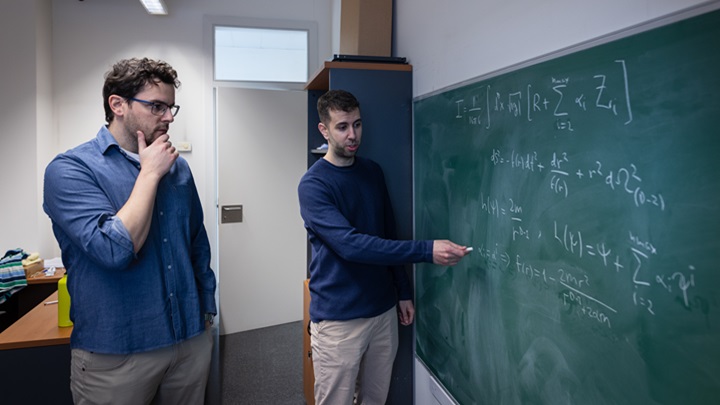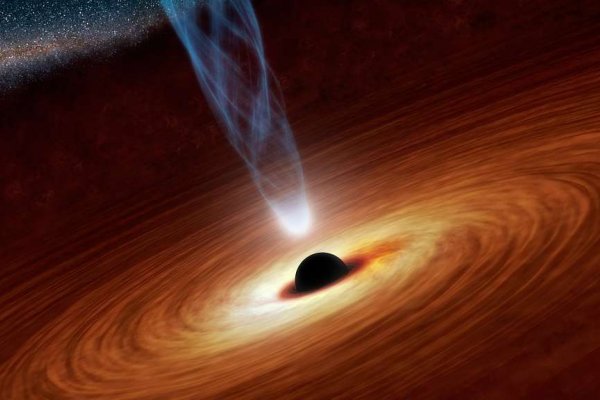Traditional black holes -as predicted by Einstein's General Relativity- contain singularities, that is, points where the laws of physics break down. Identifying how singularities are resolved in the context of quantum gravity is one of the fundamental problems in theoretical physics. Now researchers from the Institute of Cosmos Sciences of the University of Barcelona (ICCUB) have described the creation of regular black holes purely from gravitational effects, without the need for exotic matter indicated by previous models.
This discovery, published in the journal Physics Letters B, offers a promising pathway towards understanding the quantum nature of gravity and the true structure of spacetime.
Black holes without singularities
Exotic matter refers to a type of matter that has unusual properties not found in ordinary matter. It often has a negative energy density, creating repulsive gravitational effects, and can violate certain energy conditions in general relativity. Exotic matter is largely theoretical and has not been observed in nature, but it is used in models to explore concepts like wormholes, faster-than-light travel, and resolution of black hole singularities.
The new study demonstrates that mathematically, an infinite series of higher-order gravitational corrections can eliminate these singularities, resulting in "regular" black holes. Unlike previous models that required exotic matter to achieve regular black holes, this research shows that pure gravity alone, with no additional matter fields, can produce these singularity-free solutions. This is a significant shift from earlier theories and simplifies the conditions needed for regular black holes.
“The beauty of our construction is that it only relies on modifications of the Einstein’s equations that are naturally predicted by quantum gravity. No other ingredients are required”, says Pablo Cano, from the Department of Quantum Physics and Astrophysics of the Faculty of Physics and the ICCUB.

The theories developed by the researchers are applicable in any spacetime dimension greater than or equal to five. “The reason for considering higher spacetime dimensions is purely technical” says Pablo Cano as it allows them to “reduce the mathematical complexity of the problem” - he adds. Nevertheless, the researchers expect that “the same conclusions should apply in our four dimensional spacetime”.
Moreover, the expert Robie Hennigar (UB-ICCUB) says that ”most scientists agree that the singularities of general relativity must be ultimately resolved, though we know very little about how this process could be accomplished. Our work provides the first mechanism to accomplish this in a robust way, albeit under certain symmetry assumptions.”
“It’s not clear how nature prevents the formation of singularities in our Universe, but we hope our model will help us to develop an understanding of this process” Says Henningar.
Exploring findings in astrophysical scenarios
The study also explores the thermodynamic properties of these regular black holes, showing that they satisfy the first law of thermodynamics. The theories developed by the researchers provide a robust framework for understanding black hole thermodynamics in a completely universal and unambiguous way. This consistency adds to the credibility and potential applicability of the findings.
The researchers plan to extend their work to four-dimensional spacetime and explore the implications of their findings in various astrophysical scenarios. They also aim to investigate the stability and potential observational signatures of these regular black holes.
“These theories not only predict singularity-free black holes, they also allow us to understand how these objects form and what is the fate of matter that falls inside a black hole. We are already working on these questions, finding really exciting results.” concludes Pablo Cano.
Reference article:
Bueno, Pablo; Cano, Pablo A; Hennigar, Robie A. «Regular black holes from pure gravity». Physics Letters B, February 2025. DOI: 10.1016/j.physletb.2025.139260



